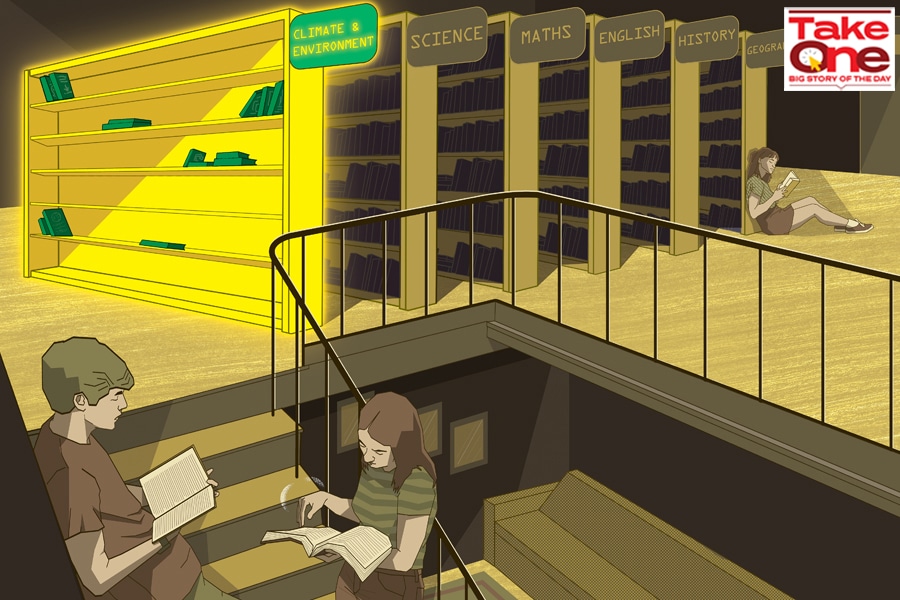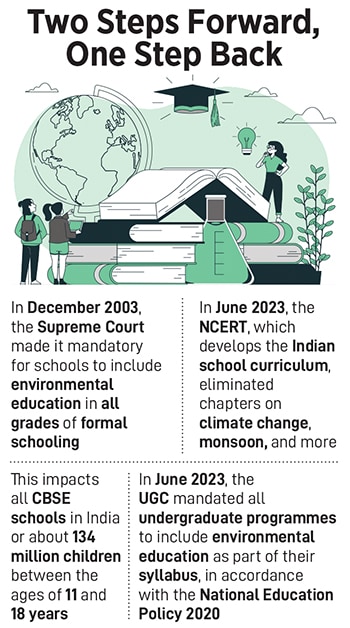
India is most vulnerable to climate disasters. Yet, climate education here falls short
While efforts to educate young minds have gained momentum, critics argue the current education system still falls short
 Critics argue that the current education system still falls short of adequately emphasising climate change education among students at the primary and secondary levels. Illustration: Chaitanya Surpur
Critics argue that the current education system still falls short of adequately emphasising climate change education among students at the primary and secondary levels. Illustration: Chaitanya Surpur
In a survey conducted by Bath University in September 2021, 60 percent of respondents said they felt worried, sad, helpless, angry, powerless, and guilty about climate change. These respondents were not adults, environmental activists, or policymakers. They were children between the ages of 16 and 25 from 10 countries, including India.
In the next decade, India will have the highest population in this age group, according to UNFPA, “and they will have to face the brunt of climate change”, says Mala Balaji, researcher-environment and climate action at Citizen Consumer and Civic Action Group (CAG), a Chennai-based non-profit working towards protecting citizens' rights in consumer and environmental issues.
“Middle school students are at an impressionable age where they are developing their critical thinking and decision-making abilities. Working towards introducing the right kind of environment education can help develop a sense of responsibility towards sustainability,” she adds.
While recent initiatives at various educational institutions and policy levels have started to integrate climate change education (CCE) into the curriculum, critics argue that the current education system still falls short of adequately emphasising CCE.
Two steps forward, one step back
As an effort to introduce CCE to students, in June 2023, the University Grants Commission (UGC) mandated all undergraduate programmes to include environmental education as part of their syllabus. This move is in accordance with the National Education Policy 2020 which recognises the importance of climate change education.




 Despite the move, “even today, a majority of teachers or students are not in a position to explain what climate change is all about because environmental education is treated as a cursory subject”, says Albert P’Rayan, an education columnist, teacher-educator, and English language teaching resource person. "We do not give much importance to the environment because we [the education system] are not eco-conscious," he adds.
Despite the move, “even today, a majority of teachers or students are not in a position to explain what climate change is all about because environmental education is treated as a cursory subject”, says Albert P’Rayan, an education columnist, teacher-educator, and English language teaching resource person. "We do not give much importance to the environment because we [the education system] are not eco-conscious," he adds. 





